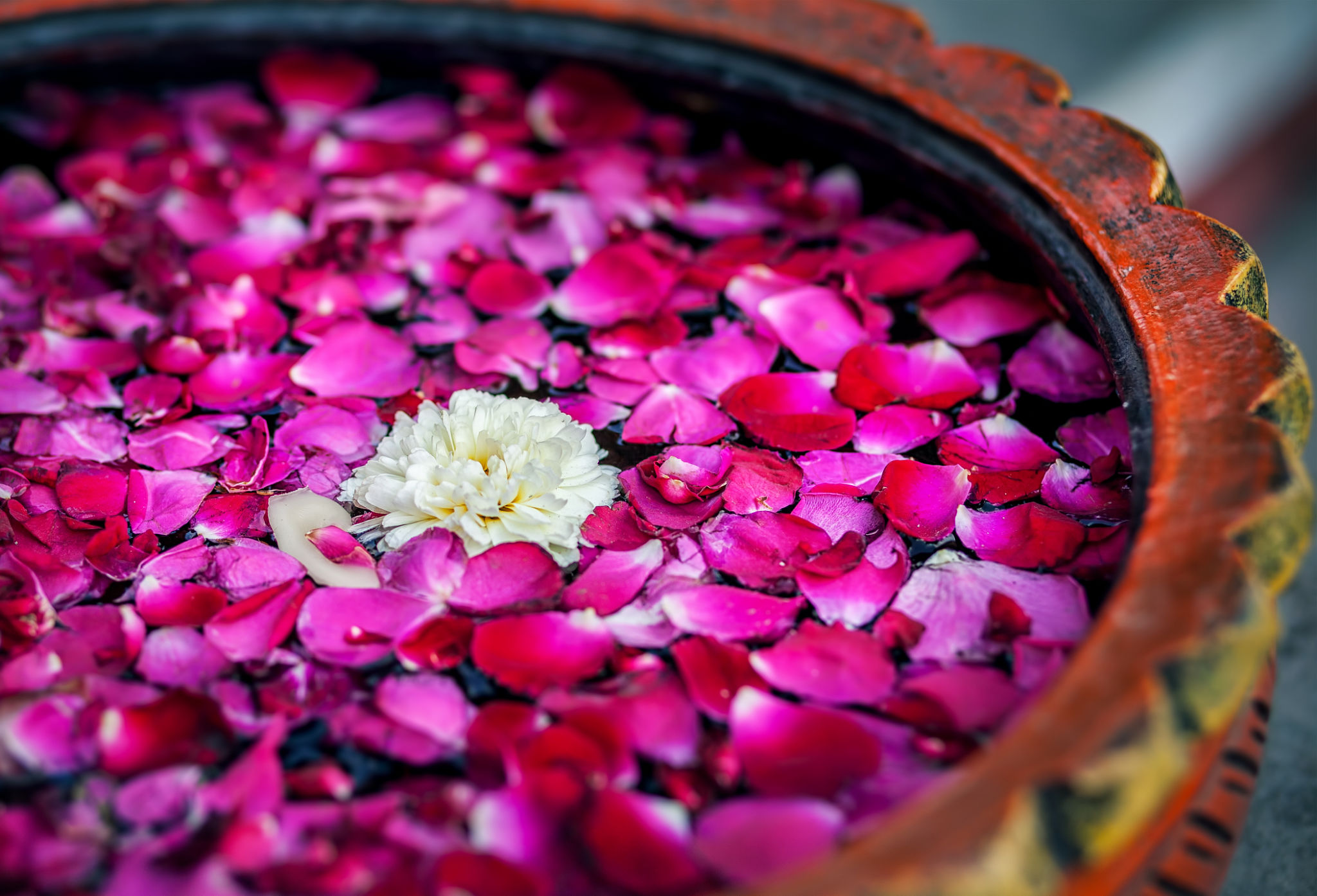Svastha: The Ayurvedic Blueprint for True Health
In our modern world, we often think of health as simply the absence of disease. We go to the doctor when something's wrong, pop a pill when we feel sick, and consider ourselves "healthy" when we're not actively suffering from any symptoms. But what if I told you there's an ancient wisdom tradition that has a completely different—and arguably more profound—understanding of what it means to be truly healthy?
Enter Svastha, a Sanskrit term from Ayurveda that revolutionizes how we think about wellness. This isn't just another health buzzword; it's a 5,000-year-old concept that could transform your entire approach to living well.
What Does Svastha Actually Mean?
The word Svastha breaks down beautifully: "Sva" means "self" and "stha" means "established" or "situated." So Svastha literally translates to "established in oneself" or "self-situated." But this simple translation barely scratches the surface of its deeper meaning.
In Ayurvedic terms, Svastha represents a state of perfect equilibrium where your body, mind, and spirit are in complete harmony—not just with each other, but with the natural world around you. It's the gold standard of health that goes far beyond merely feeling "fine."
The Ayurvedic Definition of Optimal Health
According to the classical Ayurvedic text Sushruta Samhita, a person in Svastha exhibits several key characteristics:
Physical Balance: All three doshas (Vata, Pitta, and Kapha—the fundamental energies that govern our physiology) are in their natural, balanced state. This means your digestion is strong, your energy is stable, and your body functions like a well-oiled machine.
Mental Clarity: Your mind is calm, focused, and emotionally stable. You're not constantly battling anxiety, brain fog, or mood swings. Instead, you experience a natural state of contentment and mental clarity.
Spiritual Connection: You feel deeply connected to your authentic self and your purpose in life. There's a sense of inner peace and alignment that permeates your daily existence.
Strong Digestion: In Ayurveda, healthy digestion (called "Agni") is considered the cornerstone of all health. When you're in Svastha, your digestive fire burns bright and steady.
Quality Sleep: You fall asleep easily, sleep deeply, and wake up refreshed—naturally, without relying on external aids.
Balanced Elimination: Your body efficiently removes waste through proper bowel movements, urination, and sweating.

Why Svastha Matters More Than Ever
In our fast-paced, always-connected world, true Svastha might seem like an impossible dream. We're constantly bombarded with stress, processed foods, environmental toxins, and information overload. Our natural rhythms are disrupted by artificial lighting, irregular schedules, and the pressure to be constantly productive.
But here's the thing: Svastha isn't about achieving some impossible state of perfection. It's about finding your unique point of balance and learning to maintain it despite life's inevitable challenges.
Think of Svastha as your body's natural operating system running at peak performance. When you're in this state, you're not just surviving—you're thriving. You have the energy to pursue your passions, the mental clarity to make good decisions, and the emotional stability to weather life's.
The Modern Pursuit of Svastha
So how do we cultivate Svastha in our contemporary lives? Ayurveda offers practical, time-tested strategies:
Know Your Constitution: Understanding your unique dosha combination helps you make choices that support rather than disrupt your natural balance. What works for your friend might not work for you, and that's perfectly normal.
Follow Natural Rhythms: Try to align your daily routine with natural cycles. This means going to bed earlier, waking up with the sun when possible, and eating your largest meal when your digestive fire is strongest (typically midday).
Mindful Eating: Choose fresh, whole foods that are appropriate for your constitution and the season. Eat in a calm environment, chew thoroughly, and pay attention to how different foods make you feel.
Regular Self-Care Practices: This might include daily meditation, gentle yoga, oil massage (abhyanga), or simply taking time for activities that bring you joy and peace.
Stress Management: Develop healthy ways to process and release stress, whether through breathwork, nature walks, creative expression, or meaningful connections with others.
The Ripple Effect of True Health
When you begin to embody Svastha, something magical happens. It's not just that you feel better physically—though you absolutely will. Your relationships improve because you're more present and emotionally balanced. Your work becomes more fulfilling because you have the energy and clarity to pursue what truly matters to you. You become more resilient in the face of challenges because you're operating from a place of inner strength and stability.
In essence, Svastha creates a positive ripple effect that extends far beyond your individual health. When you're truly well, you contribute to the wellness of your family, your community, and the world at large.

Your Journey Toward Svastha
Remember, Svastha isn't a destination you arrive at once and then maintain effortlessly. It's a dynamic state that requires ongoing attention and care. Some days you'll feel more balanced than others, and that's completely natural. The goal isn't perfection; it's awareness and consistent effort toward greater harmony.
Start small. Pick one area where you can begin aligning more closely with Ayurvedic principles. Maybe it's establishing a regular bedtime, incorporating more fresh vegetables into your meals, or taking five minutes each morning to sit quietly and connect with yourself.
As you begin to experience the profound difference that comes from honoring your body's natural wisdom, you'll understand why the ancient sages considered Svastha to be life's greatest treasure. After all, without true health, what else really matters?
Your journey toward Svastha begins with a single step. Why not take that step today?
Love and blessings,
Michaela